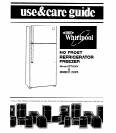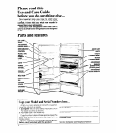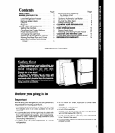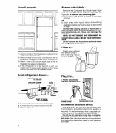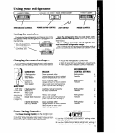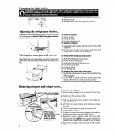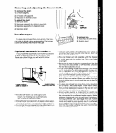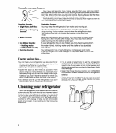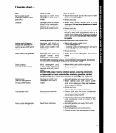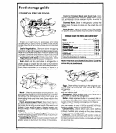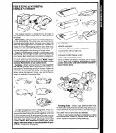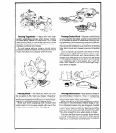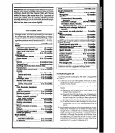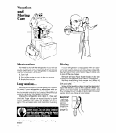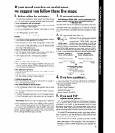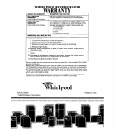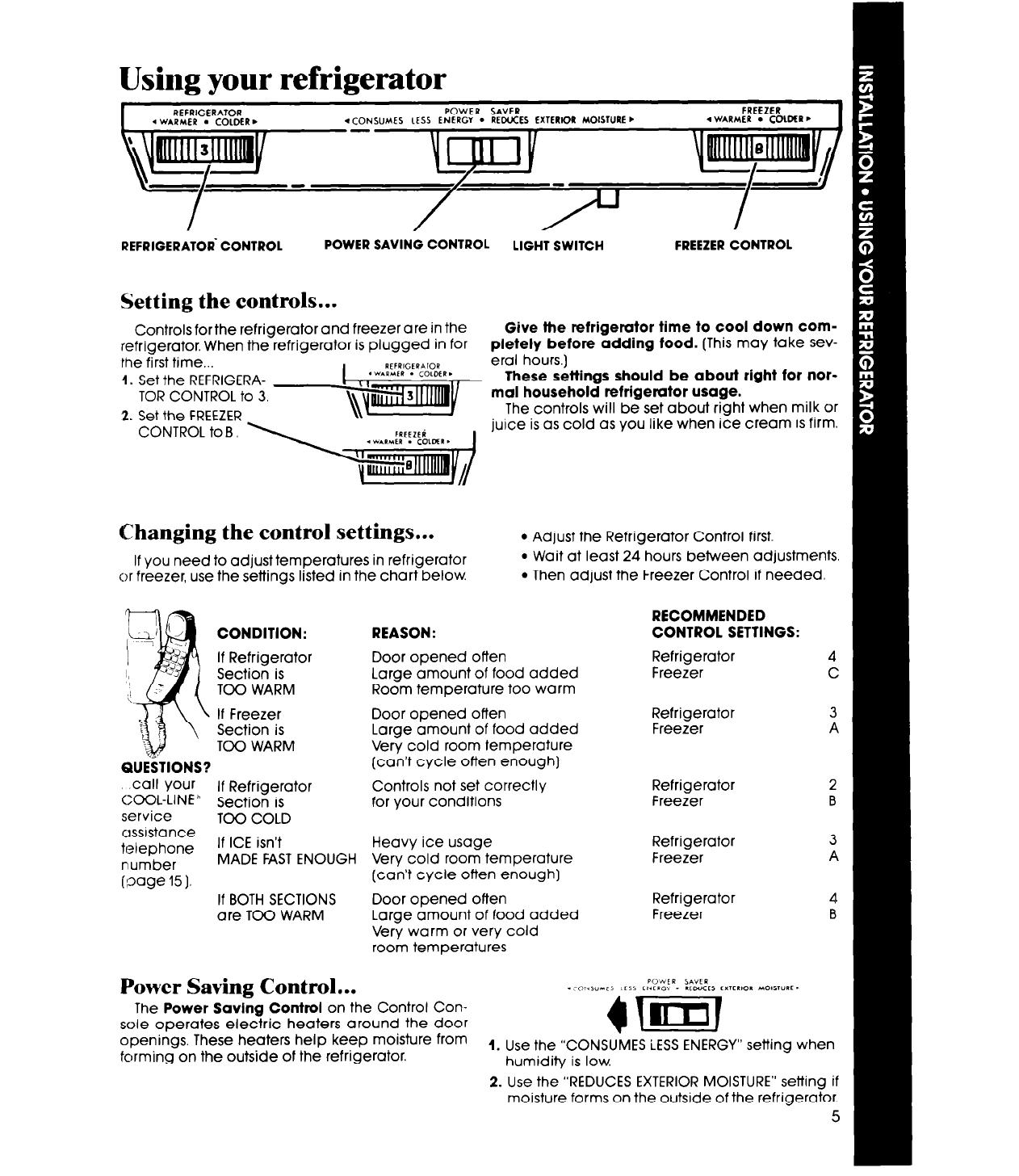
Using your refrigerator
REFRIGERATOR- CONTROL
POWER SAVING CONTROL
LIGHT SWITCH
FREEZER CONTROL
Setting the controls...
Controls forthe refrigerator and freezer are in the
Give the refrigemtor time to cool down com-
refrigerator, When the refrigerator is plugged in for
pletely before adding food. (This may take sev-
the first time...
1~
Set the REFRIGERA-
These settings should be about right for nor-
TOR CONTROL to 3.
mal household refrigerator usage.
2. Set the FREEZER
The controls will be set about right when milk or
juice is as cold as you like when ice cream is firm.
Changing the control settings...
If you need to adjust temperatures in refrigerator
or freezer, use the settings listed in the chart below.
CONDITION:
If Refrigerator
Section is
TOO WARM
If Freezer
Section is
TOO WARM
QUESTIONS?
call your
If Refrigerator
COOL-LINER Section is
service
TOO COLD
assistance
telephone
If ICE isn’t
rlumber
MADE FAST ENOUGH
(oage 15).
If BOTH SECTIONS
are TOO WARM
l
Adjust the Refrigerator Control first.
l
Wait at least 24 hours between adjustments.
l
Then adjust the Freezer Control if needed.
REASON:
Door opened often
Large amount of food added
Room temperature too warm
Door opened often
Large amount of food added
Very cold room temperature
(can’t cycle often enough)
Controls not set correctly
for your conditions
RECOMMENDED
CONTROL SETTINGS:
Refrigerator 4
Freezer
C
Refrigerator
3
Freezer
A
Refrigerator
Freezer
2
B
Heavy ice usage
Very cold room temperature
(can’t cycle often enough]
Door opened often
Large amount of food added
Very warm or very cold
room temperatures
Refrigerator
Freezer
Refrigerator
Freezer
Power Saving Control...
The Power Savlng Control on the Control Con-
sole operates electric heaters around the door
openings. These heaters help keep moisture from
forming on the outside of the refrigerator.
1. Use the “CONSUMES LESS ENERGY” setting when
humidity is low.
2. Use the “REDUCES EXTERIOR MOISTURE” setting if
moisture forms on the outside of the refrigerator.
5



